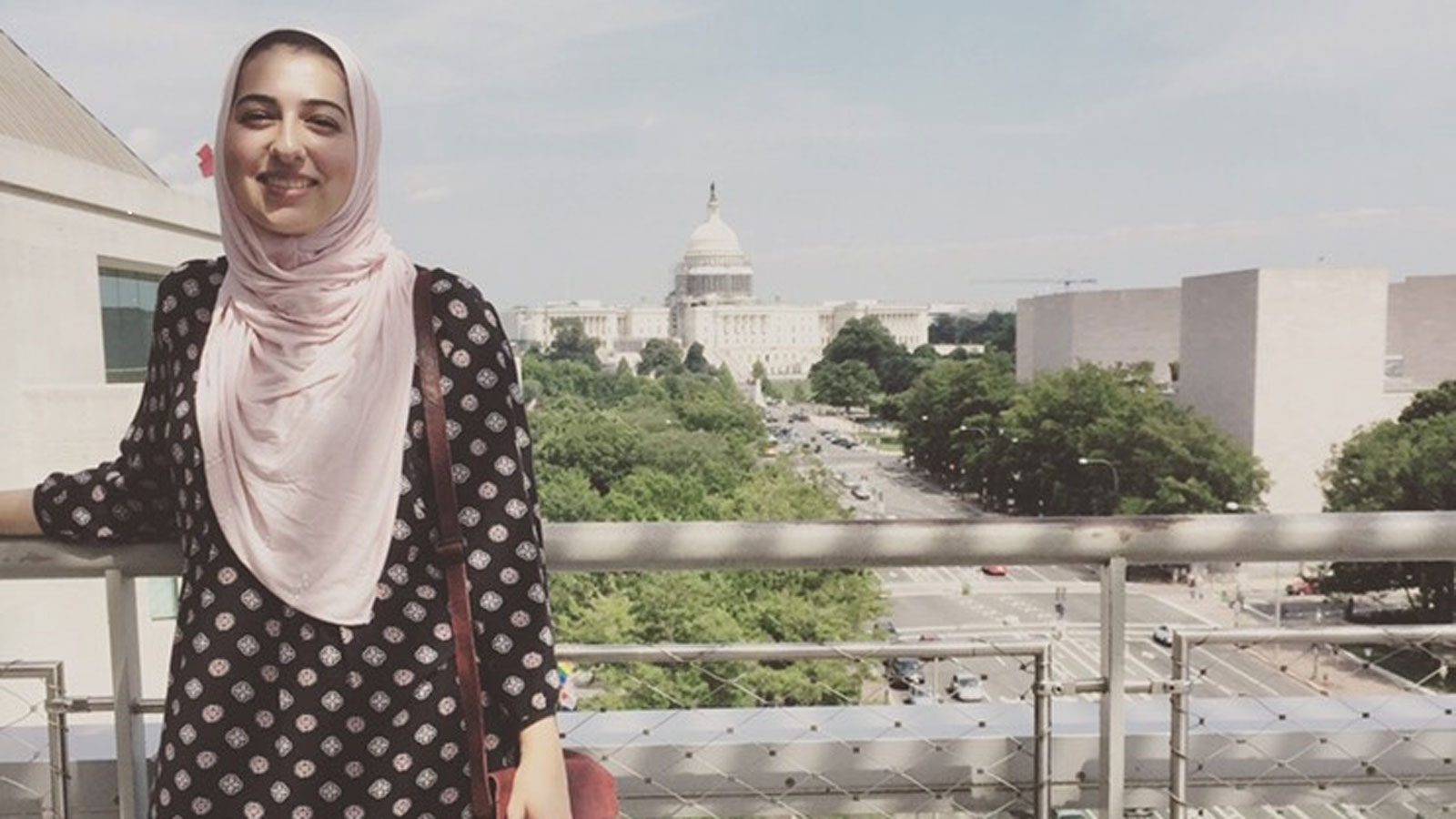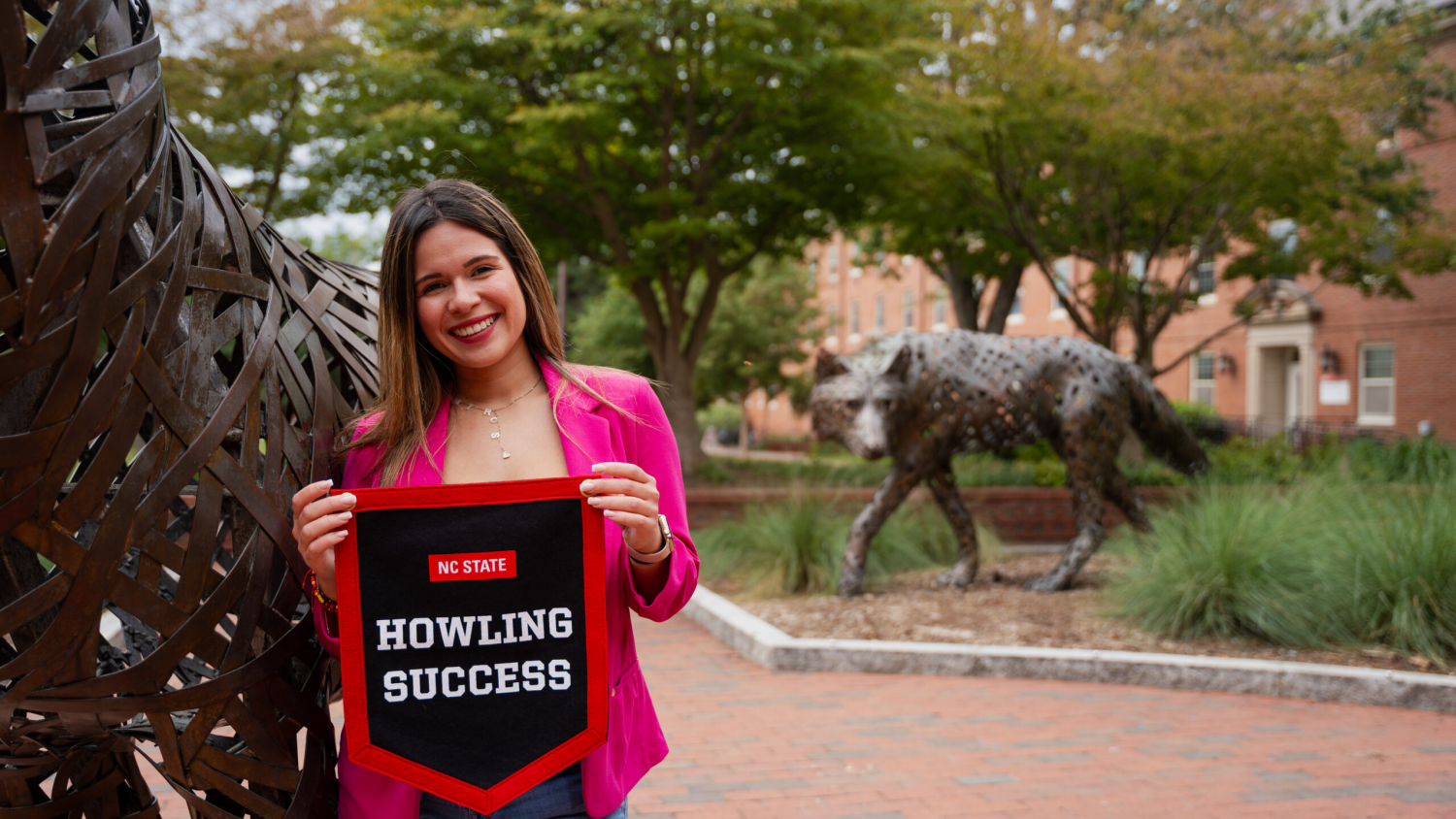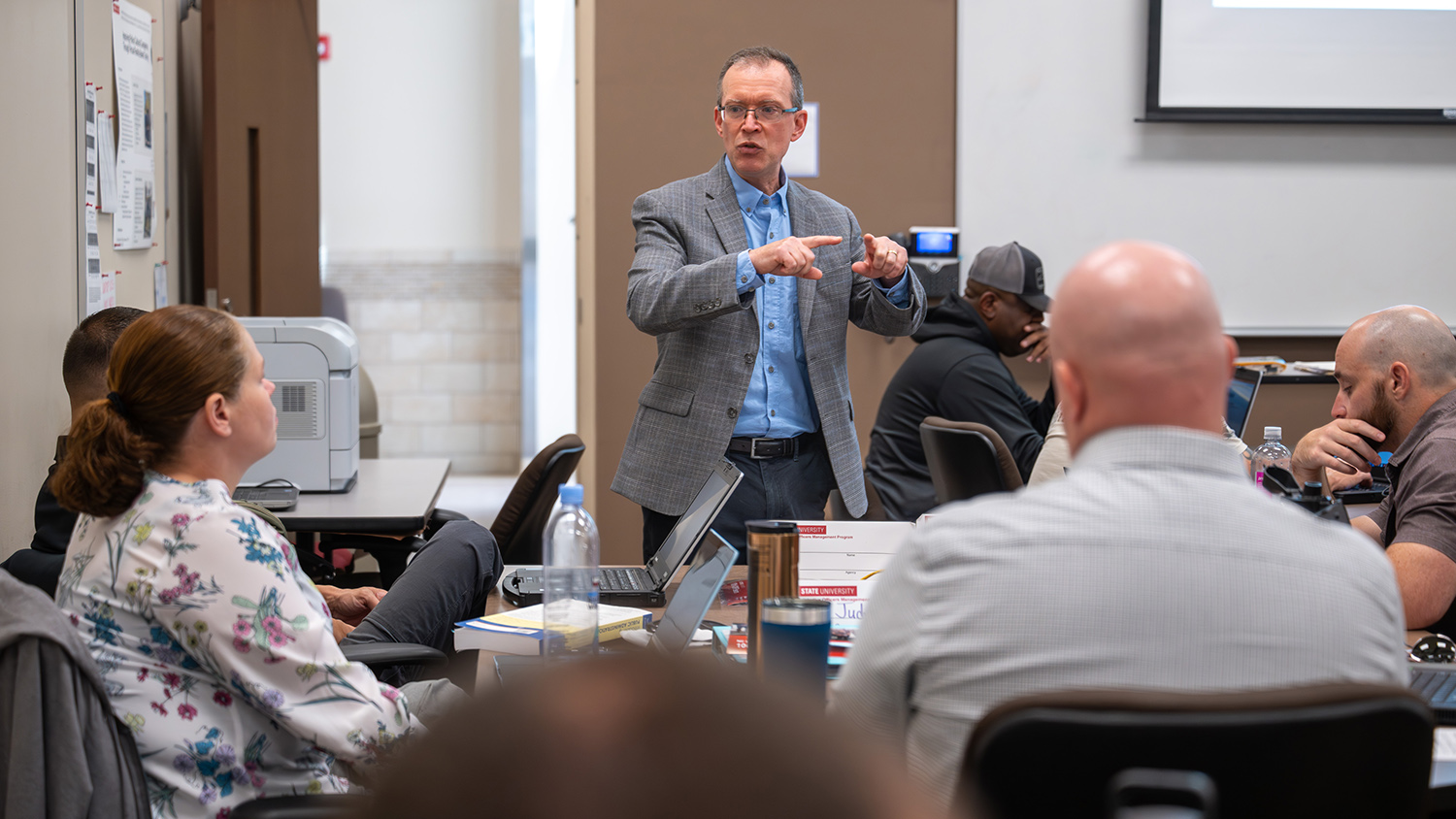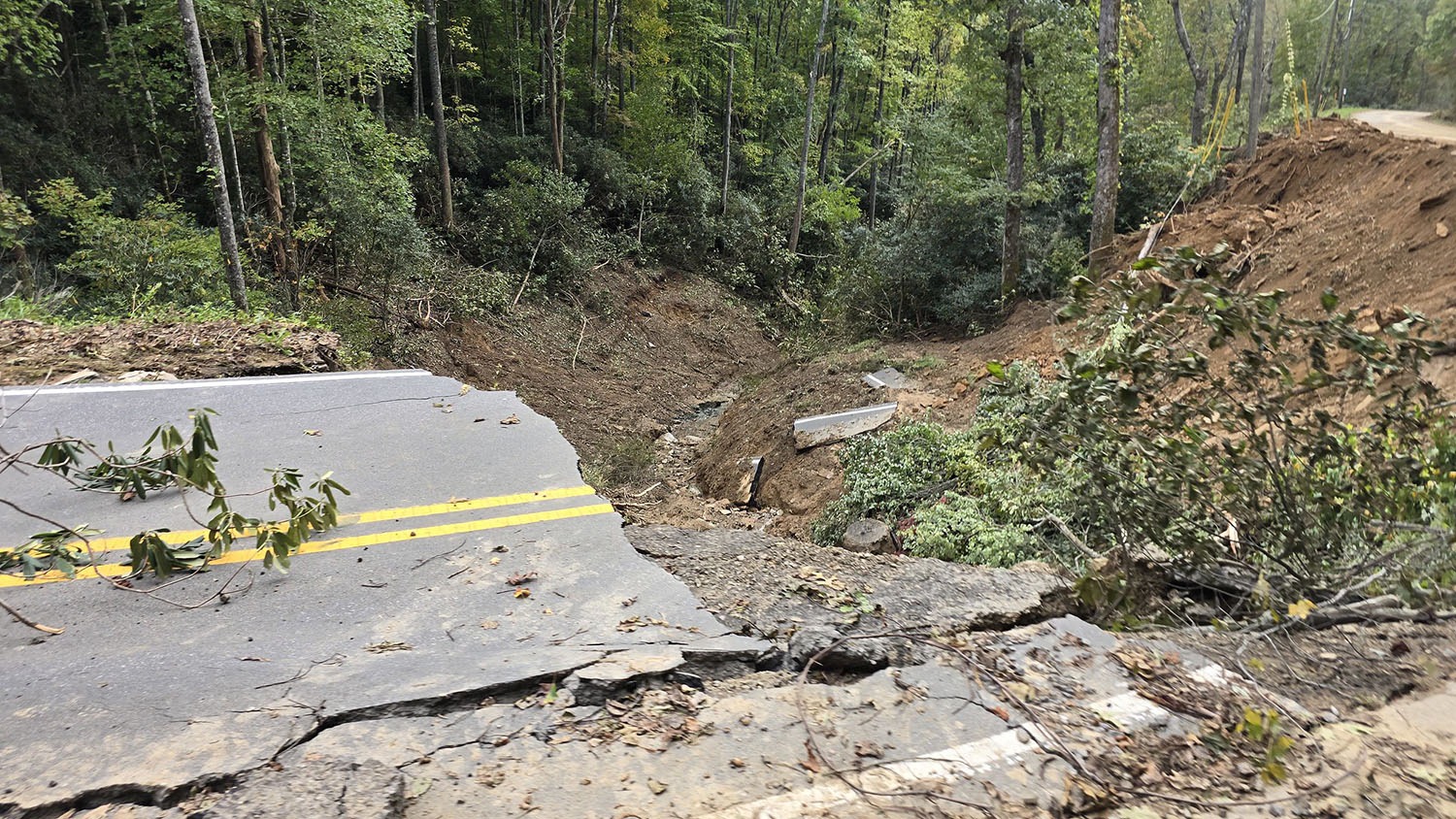National Hospice Internship Gives Student New Insights

The College of Humanities and Social Sciences encourages students to participate in internships that help them explore career options and acquire real-world experiences. In this Q & A, a student shares how her internship provided new skills, knowledge and insights.
Doha Hindi is a senior majoring in Science, Technology and Society (B.S.) and minoring in Biological Sciences. She held an internship during Summer 2016 that gave her real-life application of knowledge she has been gaining in the classroom. Her internship was key to her skill-building and professional development.
1) How did you locate your internship?
After speaking with my academic advisor about my struggles to narrow down my career interests, she suggested I get an internship in a field I am interested in. She forwarded me an opportunity available through the Fund for American Studies, where I was placed in an internship at the National Hospice and Palliative Care Organization (NHPCO) in Alexandria, Virginia – just a few metro stops away from the Washington, DC, area.
2) Describe the internship.
My internship at NHPCO was 9:00 am – 5:00 pm Monday through Thursday from the beginning of June to the end of July. I learned a lot about hospice’s role in health care. In my role as the Access and Philanthropy intern, I worked on a variety of projects, such as researching grant opportunities, collecting data about hospice organizations in the U.S. and abroad, attending conference calls between NHPCO and hospices on collaborative efforts, as well as assisting with social media efforts and improvement of NHPCO’s website.
3) How did your internship relate to your major and interests?
As a Science, Technology and Society (STS) major with a Bioethics concentration, a lot of what I learn focuses on the way technology impacts society. There are many people with terminal illnesses who spend their last moments hooked to tubes in hospital beds when in reality they want to be surrounded by family and friends in a comfortable environment, whether that be a care center or their own homes. Although technology has done a lot to improve the lives of patients, it can also be a burden that prolongs suffering and pain. STS is about studying those impacts — good and bad — that technology brings to a population.
4) What are some things you learned?
I learned about the sheer amount of work and manpower needed to successfully run such a large nonprofit organization; many roles and responsibilities must be met. I also found that my major can apply to areas I never considered before, in surprising and meaningful ways. I discovered that I have what it takes to make real and positive change in the world, but I didn’t come to this realization until I had the opportunity to show my skill sets in an internship that challenged me in impactful ways.
5) What were some of the challenges?
I needed to adapt to a new environment in a large metro area while taking on a new role in an organization I originally knew little about. I had to quickly learn a lot of information, and find ways that I could benefit the organization while also being an intern who my supervisor and co-workers remembered and appreciated.
6) What were some of the rewards?
I was able to create networks with people who work in a field that is related to my major so that I can connect with them in my upcoming job search. I also got real-world experience in having a full-time job. Through hard work and dedication to my internship, I received a very positive evaluation from my supervisor. And most of all, I realized what I am capable of as a productive member of the workforce.
After having such a positive experience, I decided to look for another internship during my senior year. I currently work as a Leaders for Change intern at the Center for Student Leadership, Ethics and Public Service right here at NC State. In this position, I have the opportunity to create change by planning and executing events relevant to social justice issues within our campus community.


